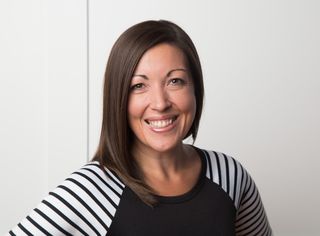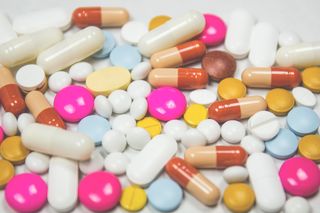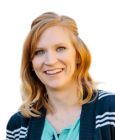Addiction
After Mom’s Overdose, Author Seeks Compassion Toward Addicts
Exclusive interview with memoir author outlines life amid the opioid epidemic.
Posted September 10, 2019
The recently published memoir by Alyse Neibaur, Raised by Narcotics: Growing up in the Opioid Epidemic, is giving readers a surprise ending. After detailing horrors of abuse and overdoses, Alyse advocates for those affected by opioid addiction to know they’re not alone.
Her intriguing story of transforming pain into compassion is one worth exploring. I was grateful for the opportunity to meet with the author to learn more about her message amid the opioid epidemic the United States is currently experiencing.
Tait: What are some main ideas about your book you would share with people who haven’t read it?
Neibaur: I think what I really want to try to convey is the misconception around how addiction begins and what it does to more than just the person who becomes addicted, what it does to an entire family. I wasn’t the addict; my family members were the addicts… As a kid, I was sheltered from it, so I didn’t even recognize that it was addiction per se until I was in my 20s…It really can happen to anyone. It could have happened to me really easily because my mom handed me the pills at a really young age, and if I had enjoyed the feeling it gave me, I would be an addict or dead already… I’m happy those first pills made me really sick.
Tait: Why did you decide to write the book?
Neibaur: I was writing as a way to cope with all the death, and trauma, and memories. I don’t think I really decided it was going to be a book until four or five years into it… After my mom died, I was just using writing as a way to deal with the emotion and pain, because I didn’t really have anyone to talk to.
Tait: What made you shift from writing as a way to cope into, I want to share this with people?
Neibaur: I carried around a lot of anger, and a lot of resentment toward a lot of people; pretty much everyone in my life because I felt so isolated and so alone. A lot of my writing was very angry and upset, and when it first started, I really wanted to share that pain. I wanted people to see it and understand it because I felt so invisible... I didn’t want to be alone with it anymore. I felt like I was hiding this big secret. I was suicidal. I was depressed. Every day I felt like my life was falling apart, but all anyone could see was the perfect wife, the perfect mother. I felt like I was struggling so much, and I couldn’t understand how others couldn’t see it.
Tait: Can you tell us about the Bottled Up Foundation and why you started it?
Neibaur: I just want to have a community for people who have opioids in their life, whether they’re addicted or know someone addicted to them… I want to say, If opioids are in your life, please be a part of my group, because you need support. You need emotional support… It’s what I didn’t have growing up. I didn’t have a network, so I want to create that for people who are struggling the way I did as a teenager.
Tait: Do you think the foundation has helped you heal? Do you feel a sense of responsibility to help others affected by opioids, given what you know now?

Neibaur: I feel like I’m in a really good spot emotionally, but I don’t think I can ever fully heal. That’s why I have the foundation. I need this community still. I’m giving someone the opportunity to think, oh, she shared her pain with me, maybe I can do the same thing.
A lot of people have told me they’ve felt inspired to start writing or start sharing. I think we all recognize that pain from addiction is everywhere, but you don’t see it still. It’s still really invisible. It’s about opening it up and making it less invisible.
The world can feel so big, and you can feel so alone. That’s not right. You should be able to connect with someone else. Someone else is feeling your pain. Someone knows your struggle.
Tait: In what ways are you different than maybe what you would be, had you experienced a more typical childhood?
Neibaur: I’m definitely more aware of medicine and things that happen inside clinics… I went to the extreme with trying to be as healthy as possible… I still struggle. Despite everything I’ve been through, and the good things that are coming out of this, all of those silver linings are around a massive heartache that I carry around, probably for the rest of my life.
Tait: How has your perception of addiction changed?
Neibaur: I don’t think I see people who have been addicted the same as someone who hasn’t seen what I’ve seen.
Tait: Is there a message you want to give people who haven’t encountered your situation? What would you want them to know about addicts?
Neibaur: I would want them to have more compassion. People think of an addict and just think of a low-life—a person who doesn’t have their sh*t together. When you hear of someone who is an addict, or someone who is homeless—my mom was both of those things—you just think it’s someone who doesn’t deserve to have a good life. They did this to themselves. They woke up one day and wanted to be an addict. But that is never ever how it works.
So many people said that these are choices that you make in life, but is it really a choice to get into a car accident? Or to need surgery? Is it really your choice to get an illness, terminal or otherwise?... I would hope that people would have more compassion toward people who have to use medications because sometimes it is a necessary evil. I wish my family had had that compassion and that follow-through from medical professionals or from family members…. Every problem that we faced was given a pill instead of support.
Tait: Now that your book a is finished, what are you hoping to see?
Neibaur: More community. I really think that’s what it comes down to. More human interaction over this thing. I don’t think any of our problems are going to be solved unless we can connect in person. Support each other, talk to each other. It’s not just about asking, Who will support me? but rather, Who can I support?
When I first started writing, that’s all I could think about: Why won’t anyone be here for me? It was a very selfish mentality to live in. Now my hope is to reach out to as many people as I can… I think the truth of it is that we are all struggling with something…. Everyone has something they feel they struggle with and need a community for.

Neibaur echoes addiction researcher Johann Hari who said, “The opposite of addiction is not sobriety. The opposite of addiction is connection.”
To learn more about Alyse Neibaur’s inspiring story, visit RaisedbyNarcotics.com. For information on The Bottled Up Foundation, a support group for anyone affected by the opioid epidemic, visit https://www.facebook.com/groups/bottledup/.




